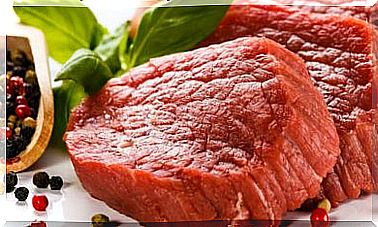Milk Allergy And Lactose Intolerance: What Are The Differences?
Surely you have heard of dairy products and some diseases that are related to their consumption. The most mentioned, probably, are milk allergy and lactose intolerance. Differences exist?
It is essential to bear in mind that, although both conditions share some symptoms, they produce different effects on the body. Therefore, it is essential to know how to distinguish them. Milk allergy is actually an allergy to cow’s milk protein, while lactose intolerance is difficulty absorbing the sugar in milk called lactose.
What does milk contain?
Milk contains several nutrients that are:
- Proteins: casein and whey.
- Carbohydrates: lactose (made up of glucose and galactose).
- Fats and vitamins.
In addition to these nutrients, milk has water.

Milk allergy or lactose intolerance?
Milk allergy is a condition that, as stated in a study published in the British Journal of General Practice , is usually caused by the protein fraction of milk. Cow’s milk is the usual cause of milk allergy, but milk from sheep, goat, buffalo, and other mammals can also cause this reaction.
Intolerance, meanwhile, is directly caused by carbohydrate or milk sugar, called lactose, which in turn is made up of glucose and galactose (they are simple molecules).
What happens in lactose intolerance is that the body does not produce an enzyme responsible for allowing its breakdown and absorption.
The fundamental difference is that allergy is a reaction mediated by the body’s immune system and in intolerance the immune response does not exist. Allergy being less common than intolerance.
The other basic difference is that each of these diseases are caused by a different fraction of milk. One is for the protein and the other for the sugar or hydrate. Milk intolerance requires different treatment than an allergy.
Sometimes, the symptoms of intolerance improve dramatically when the subject is subjected to a protocol of administration of probiotics, according to the most recent research.
Milk allergy and lactose intolerance: most common symptoms
Between milk allergy and lactose intolerance, are there differences in symptoms? Common signs and symptoms of milk protein intolerance or lactose intolerance include digestive problems such as bloating, gas, or diarrhea after consuming milk or dairy products.
In allergy the consequences can be even fatal, depending on the sensitivity and response of the immune system. To determine the diagnosis of one or the other, it is necessary to carry out a correct questioning of the patient and specific tests to observe the reaction to the consumption of milk and milk derivatives.
It is important to avoid the consumption of milk in the case of allergy sufferers, since it has been shown that it is a very harmful element for their body. In the case of intolerant people, the inclusion of lactose-free dairy can be considered.

Precautions
It is important that, if you already have a medical diagnosis of any of these diseases, you check the labels not only of the food but also of the medications you take.
There are many foods that can say “free of” or “vegan “, but in the list of ingredients we are surprised that they indicate that they may contain traces of milk or lactose.
Similarly, some drugs contain lactose as an excipient for their manufacture. To find out what they are, it is convenient to consult this list published in the SVR magazine.
However, in both conditions it is important to obtain an adequate diet. For this reason, part of the treatment should be indicated by a nutritionist. This professional will be in charge of determining the diet based on the individual characteristics of each one.
Identify milk allergy or lactose intolerance
As you have seen, there are significant differences between lactose intolerance and milk allergy, the second condition being much more dangerous. An early diagnosis is important, in order to adapt the dietary pattern to individual needs, avoiding in many cases dairy products.
In the case of the intolerant, there are less drastic solutions. It is possible to consume lactose-free food or ingest a lactase enzyme pill, to ensure the metabolism of this sugar.









